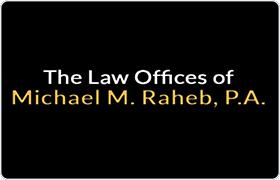Sarasota Divorce Lawyer, Florida
Sponsored Law Firm
-
 x
x

Click For More Info:
-
Law Offices of Michael M. Raheb P.A.
2423 First St Fort Myers, FL 33901» view mapCriminal Defense Law Legal Problem? Call Us 24/7
At the Law Office of Michael M. Raheb, we strive to ensure each of our clients receives the individual attention and representation necessary to obtain an optimal outcome.
800-890-8981
Includes: Alimony & Spousal Support
Whitney Clay Coyne
✓ VERIFIEDFelony, Divorce, Traffic, DUI-DWI
Mr. Coyne started his career as a prosecutor for the State of Florida in the Twelfth Judicial Circuit. While acting as a prosecutor, he individually h... (more)
Wendy R. Doyle
Alimony & Spousal Support, Child Support, Adoption, Animal Bite
Status: In Good Standing
FREE CONSULTATION
CONTACTFREE CONSULTATION
CONTACTMatthew Z. Martell
Civil Rights, Estate Planning, Divorce, Business, Family Law
Status: In Good Standing Licensed: 26 Years
Lee Wayne White
Divorce & Family Law, Child Support, Child Custody, Divorce
Status: In Good Standing Licensed: 16 Years
FREE CONSULTATION
CONTACT Michael M. Raheb Fort Myers, FL
Michael M. Raheb Fort Myers, FL Practice AreasExpertise
Practice AreasExpertise

